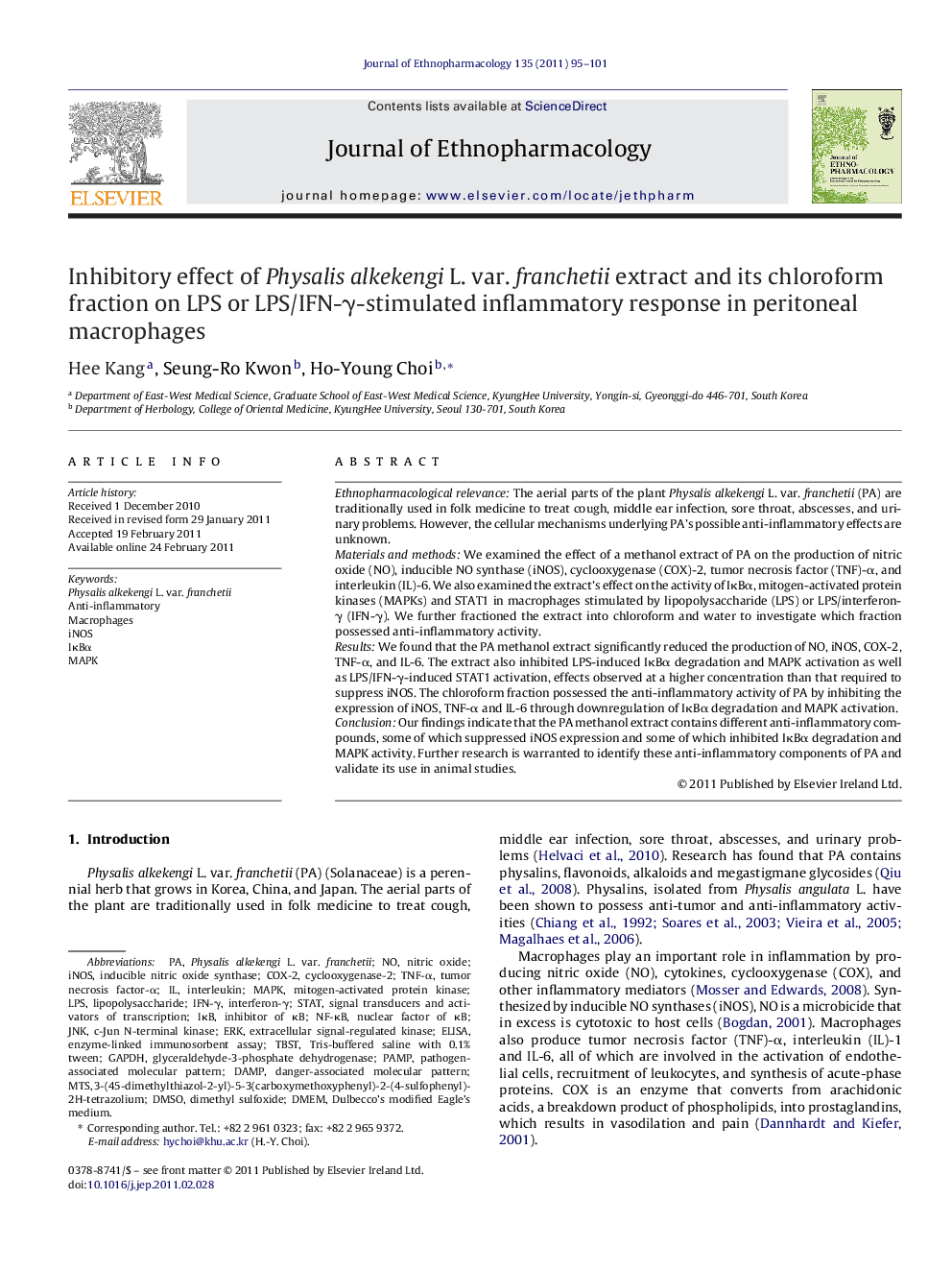| Article ID | Journal | Published Year | Pages | File Type |
|---|---|---|---|---|
| 2545808 | Journal of Ethnopharmacology | 2011 | 7 Pages |
Ethnopharmacological relevanceThe aerial parts of the plant Physalis alkekengi L. var. franchetii (PA) are traditionally used in folk medicine to treat cough, middle ear infection, sore throat, abscesses, and urinary problems. However, the cellular mechanisms underlying PA's possible anti-inflammatory effects are unknown.Materials and methodsWe examined the effect of a methanol extract of PA on the production of nitric oxide (NO), inducible NO synthase (iNOS), cyclooxygenase (COX)-2, tumor necrosis factor (TNF)-α, and interleukin (IL)-6. We also examined the extract's effect on the activity of IκBα, mitogen-activated protein kinases (MAPKs) and STAT1 in macrophages stimulated by lipopolysaccharide (LPS) or LPS/interferon-γ (IFN-γ). We further fractioned the extract into chloroform and water to investigate which fraction possessed anti-inflammatory activity.ResultsWe found that the PA methanol extract significantly reduced the production of NO, iNOS, COX-2, TNF-α, and IL-6. The extract also inhibited LPS-induced IκBα degradation and MAPK activation as well as LPS/IFN-γ-induced STAT1 activation, effects observed at a higher concentration than that required to suppress iNOS. The chloroform fraction possessed the anti-inflammatory activity of PA by inhibiting the expression of iNOS, TNF-α and IL-6 through downregulation of IκBα degradation and MAPK activation.ConclusionOur findings indicate that the PA methanol extract contains different anti-inflammatory compounds, some of which suppressed iNOS expression and some of which inhibited IκBα degradation and MAPK activity. Further research is warranted to identify these anti-inflammatory components of PA and validate its use in animal studies.
Graphical abstractFigure optionsDownload full-size imageDownload as PowerPoint slide
